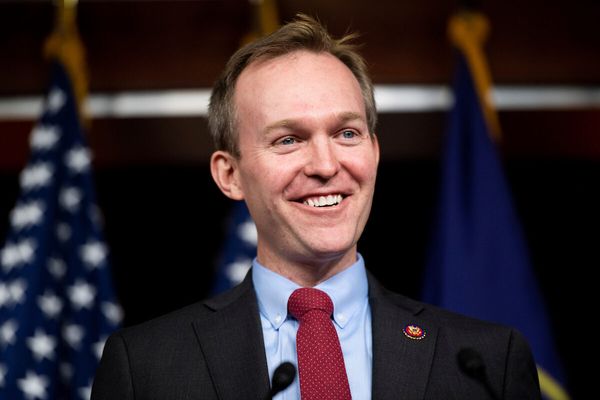
Rishi Sunak will not “stop the boats” carrying asylum seekers across the Channel. He still promotes that general ambition, but with synthetic enthusiasm that contains more exasperation than confidence.
Even if the scheme for removing asylum claimants to Rwanda were up and running, the deterrent effect on people launching dinghies from Calais is doubtful. Facilities in Kigali can handle only a few hundred cases at most. UK government policy envisages deporting thousands. But that’s academic anyway, because the supreme court has ruled that Rwanda cannot be considered a “safe third country”, so sending refugees there would be unlawful.
Ministers are considering various legal routes around this obstacle, but the overall strategy has two components. First, sign treaties and pass laws that solemnly declare Rwanda to be safe, although Britain’s highest judicial authority says it isn’t. Second, disapply some or all of the human rights law, international and domestic, on which that inconvenient judgment was founded.
This is political pantomime. MPs can’t remotely insert safety into another country’s asylum process. In theory, parliament could rip up all the statutes and conventions that oblige Britain to protect refugees, but it won’t. Sunak might be able to muster a Commons majority for something of that kind, but he’ll face a significant backlash.
David Cameron, newly restored in pomp as foreign secretary, is reported to oppose anything that would damage Britain’s standing as a law-abiding member of the international community. Sunak’s record of compromise in post-Brexit negotiations over Northern Ireland suggests he has the same non-confrontational instinct. He didn’t sweat over the Windsor framework to then sabotage the Good Friday agreement all over again by pulling Britain out of the European convention on human rights (ECHR).
The prime minister says he hasn’t ruled out such a drastic move. That means he is hoping to discover some legislative alchemy to draft a bill that is consistent with the UK’s international obligations while also giving anti-ECHR Tory backbenchers what they want.
That can never work, because the hardliners won’t be fooled. Besides, even if almost all their demands are met, they will eke out some new grievance because they crave betrayal and self-righteous martyrdom more than any policy. That is the obvious lesson from Brexit. It was enacted to the exact specifications preferred by the most radical Eurosceptics, and still they mourn its contamination by compromise.
It isn’t a difficult pattern to spot. One day maybe the Conservative party will be led by someone who is prepared to end the ritual sacrifice of credibility on the altar of ideology.
Sunak isn’t that person. If he ends up overindulging the right, he could face a backlash from liberal Tories, although their acquiescence to increasingly extreme positions is almost as predictable as the hardliners’ determination to keep turning the ratchet. But if Conservative moderates have one of their trademark failures of nerve and a Commons rebellion in defence of human rights falters, the Lords will hold the line.
Sunak is as badly snookered as a prime minister can get. He has left himself no credible avenue of retreat from a policy that wouldn’t work even if he could implement it, which he can’t.
James Cleverly is too loyal to admit that his leader’s position is hopeless, but too proud to fake the stupidity that would be required not to see it. Hence the home secretary’s position, between acknowledgment and denial. He cannot disown the Rwanda scheme so he urges people to recognise that it is “not the be-all and end-all” of Tory policy.
In any case, the volume of people arriving by illegal maritime crossings is dwarfed by the numbers landing with permission, mostly to study, work or join family members already settled in the UK.
Conservative MPs are now getting increasingly agitated about that legal traffic too, and demanding it be suppressed. Ministers are stuck between the reflex to promise that a high number will be made lower, and the awkward reality that the number is so high because the NHS and social care can’t function without importing labour. It might be possible to engineer a situation where Britain has lower net migration and recruits enough nurses, but not in time for the next election.
A courageous leader would confront his party and the public with these facts. Sunak isn’t that guy. He will carry on hedging and hoping for something to turn up. He will continue in the cowardly habit of avoiding candid positions, instead letting his views be inferred from the choices he makes, or doesn’t make, or finds imposed upon him.
A certain amount of expediency in pursuit of ambition is to be expected in a politician. But Sunak’s ethical judgments are unusually opaque when it comes to controversial people and issues that sharply divide Conservative opinion. One day he was loyal to Boris Johnson, then suddenly not. He thought Suella Braverman was a good fit for the Home Office, then one day he didn’t. Now he is honouring her legacy by pursuing the policy that most exemplified her unsuitability for the role.
Sunak has appeared with banners saying “stop the boats” too often to surrender the intent. He has to pretend it is still the goal. But it has become an albatross of a slogan, hanging on the neck of a moribund administration, like John Major’s “back to basics” or Gordon Brown’s boast of having eliminated the boom-bust cycle. It empowers people who want to damage the prime minister by reminding voters of his broken promises.
That weapon could be particularly lethal in the hands of Reform UK, the rebranded Brexit party, potentially back under Nigel Farage’s leadership come the next election. Even a fairly modest swing of disillusioned Tories to the Faragist fringe could hand dozens of seats to Labour, making the difference between ordinary defeat and crushing rout for Sunak.
Even without the Reform factor, most Tory MPs have made the psychological leap to opposition. The battle lines are already drawn between two models of conservatism. One has room for liberals. It honours traditions of constitutional propriety and willingly submits to the rule of law. The other is essentially nationalist. It claims legitimacy from a quasi-mystical, intuited sense of the popular will. It cites that authority as reason to sweep aside all institutional or legal constraint. One recognises Farage as an old enemy and the other sees him as a potential leader.
This is the battle being waged by proxy through arguments about Rwanda, small boats and human rights. It is a contest between forces that are incompatible, making the Tories ungovernable and Sunak’s position impossible.
Rafael Behr is a Guardian columnist







